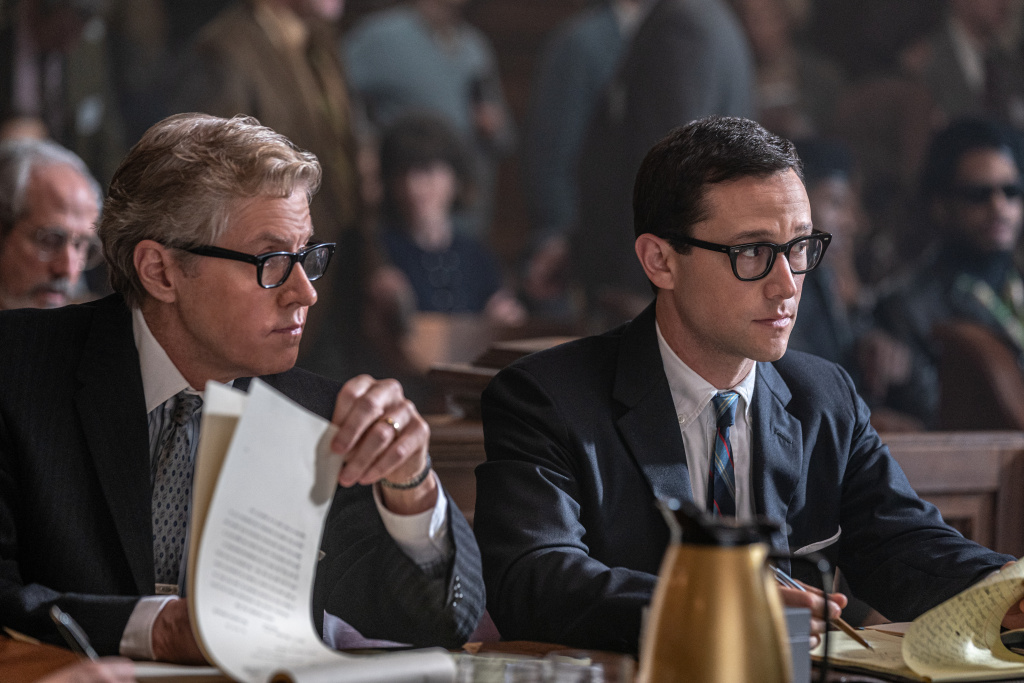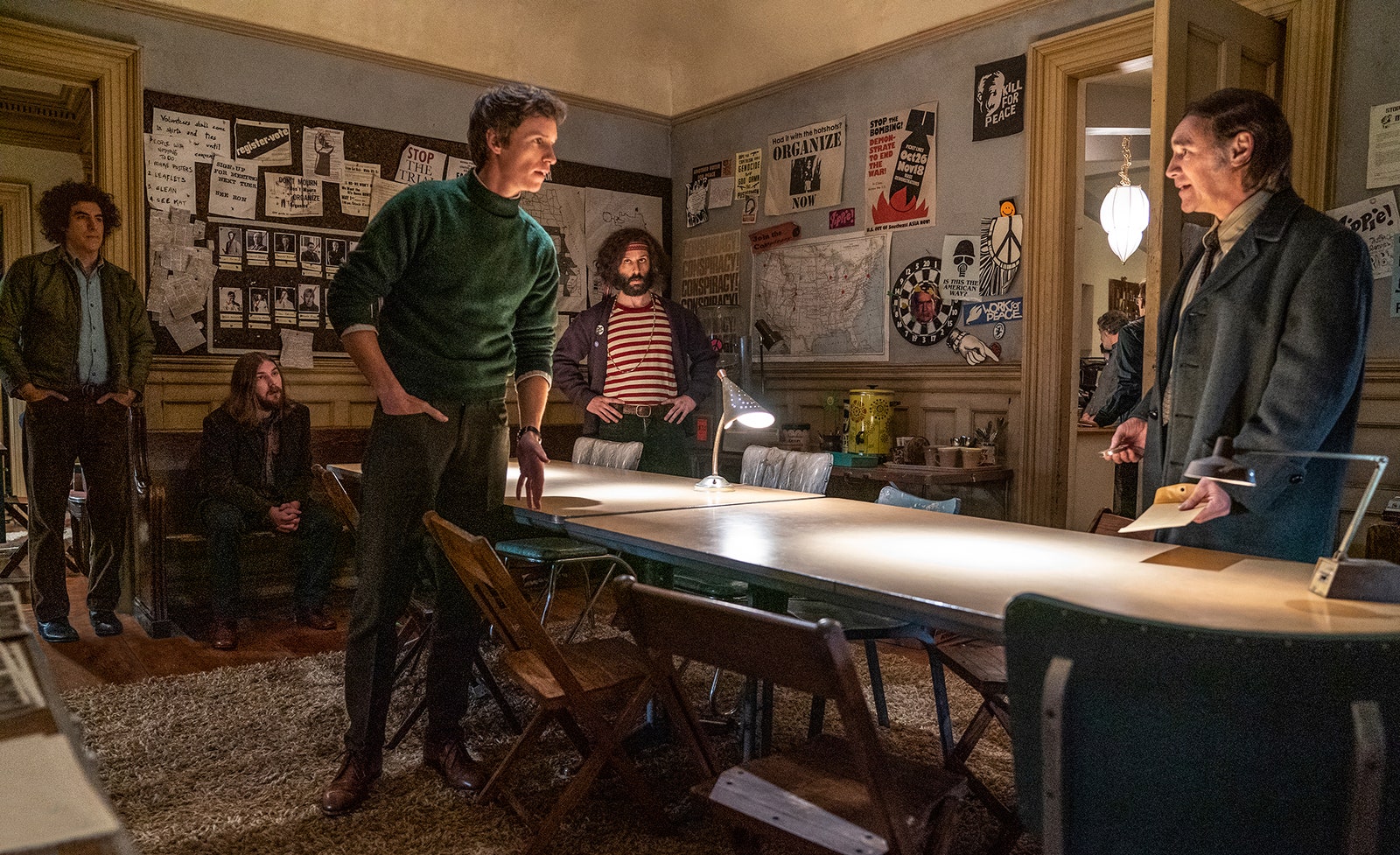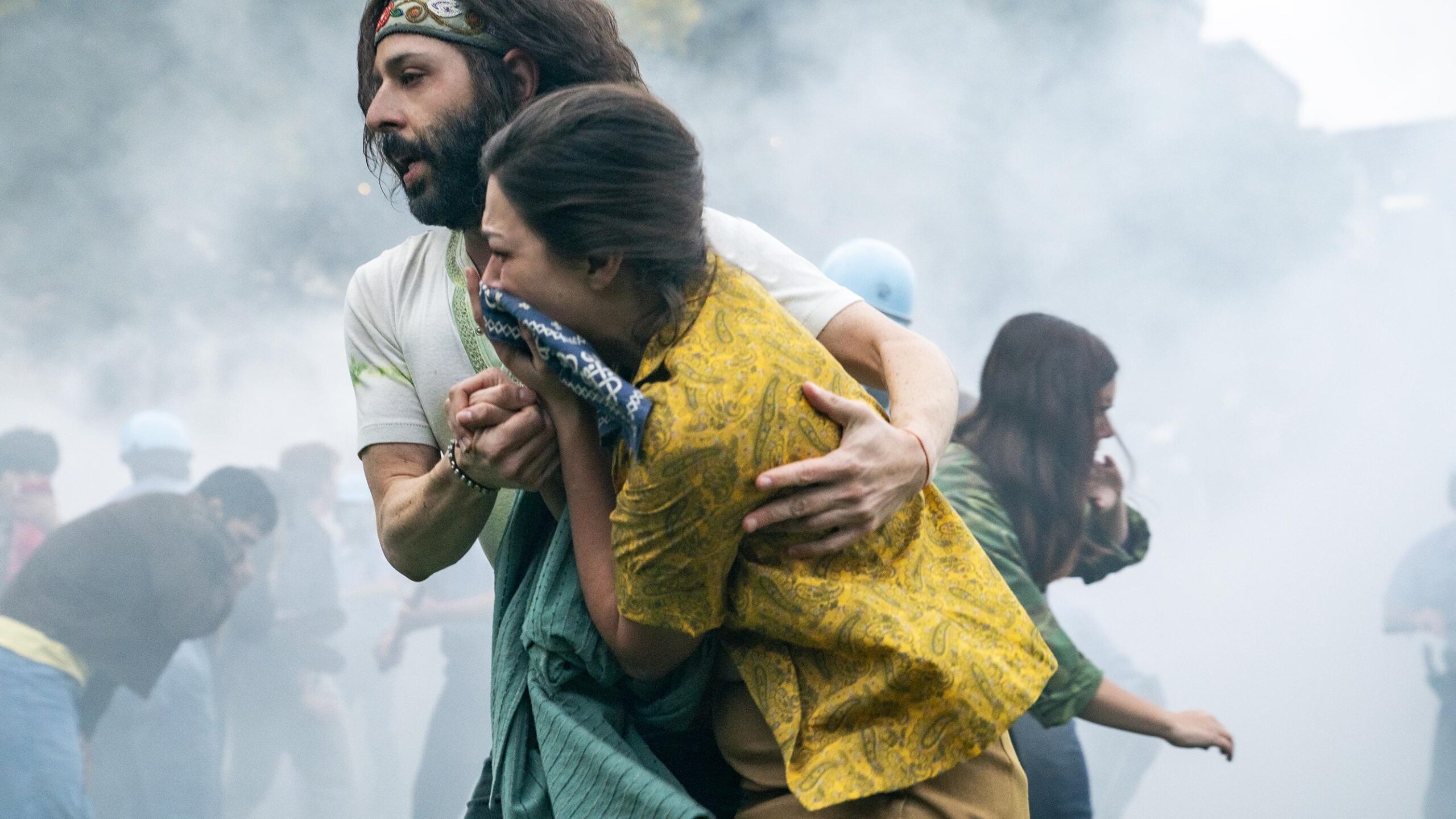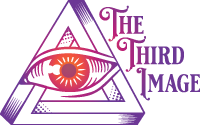The Trial Of The Chicago 7



It’s rare, very rare, that a tense and powerful courtroom drama comes along that not only teaches us past events but also taps into the current social moral zeitgeist. Dreyer’s 1928 The Passion of Joan of Arc stands out as one of the best, whilst the undisputed classic To Kill A Mockingbird is only loosely based on a true story but certainly reflective of its period. The Pacino-starring And Justice For All, whilst often excluded from lists of Pacino’s best films, and is fictitious, is a strong example of spectacle courtroom drama (“You’re out of order!”, “No, YOU’RE out of order! This whole court is out of order!!”), portraying frustration at the system. But everyone remembers the modern classic A Few Good Men in which the immortal line “You can’t handle the truth” was exclaimed by Jack Nicholson in defiance of Tom Cruise’s young lawyer. That film is also a work of fiction, yet, it was written by a young Aaron Sorkin, only starting out at the time, and who’d go on to pen The West Wing, Moneyball, the David Fincher-directed The Social Network, and eventually writing and directing Molly’s Game.
The fast-talking, hard boiled, no-time-to-waste style of Sorkin’s writing (just look at The Social Network’s opening scene) is what made him a power player in Hollywood, and is perfectly suited to a courtroom drama about a chaotic show trial. Hence, though the story of The Trial Of The Chicago 7 was once earmarked for Steven Spielberg, it is a blessing that Sorkin got his hands on it.
The film follows the trial and circumstances surrounding a group of 8 people accused of inciting a riot at a 1968 Democratic Convention. Each person coming from different movements, different backgrounds, different politic motivations and ideas of protest. Together they form a spectrum of dissent. Several of the accounts given in court come from what were undercover police and FBI agents looking for hooligans, activists, and terrorists that could pose a threat to the status quo. The judge, meanwhile, seems not only completely incompetent in his role, but decisive before a trial even gets fully rolling. Part of the debate is not only over whether the defendants are guilty of inciting violence, but whether it’s possible for the trial to proceed fairly, or whether it’s become too politicised for true justice to be carried out.
2020 is a year marked not only by lockdown and isolation, but by fear and anger. Much of that anger has spilled out on to the streets, worldwide. Voices and fists were raised over several civil and human rights issues, people coming together against government guidelines. And some of those protests turned into riots which in turn raised several commentators to ask whether such expressions of anger are justified. To complicate matters, to what extent were protest groups infiltrated by malicious parties, and riots encouraged or started by uninvited clandestine provocateurs? As The Trial of the Chicago 7 shows us, these are not new questions, nor previously unexplored issues, which need addressing, and deserve addressing, in a free democratic society and empathetic civilisation.
The cast alone is a pleasure to watch. From Eddie Redmayne, to Gordon Joseph Levitt, Michael Keaton, and Sacha Baron Cohen in an unusually serious role but with a dark comedic edge, with Frank Langella as the judge – all are fantastic in performances that are pitch perfect in tone and delivery. The production design takes you right back to the smokey, rebellious, uncertain, Cold War period. For the two hour duration, the audience is transported and taken away to another time. The cinematography is epic in scale, giving the entire text a hefty weight of importance. It’s almost a shame that it’s committed to the small screen, as Netflix came along and bought it from Paramount to make sure it gets seen during the current period of closed-down cinemas. But seen it must be, and so between it streaming or not being seen at all, it’s a relief that the lesser of two evils was chosen. Yet I can’t help wonder how much more attention it would have received if it did have big-screen distribution.
Six months after the ’68 Democratic Convention, the American judicial system was failing those accused. But we are lucky that today, we can reflect back on that, and hope that change for better continues to be possible.
